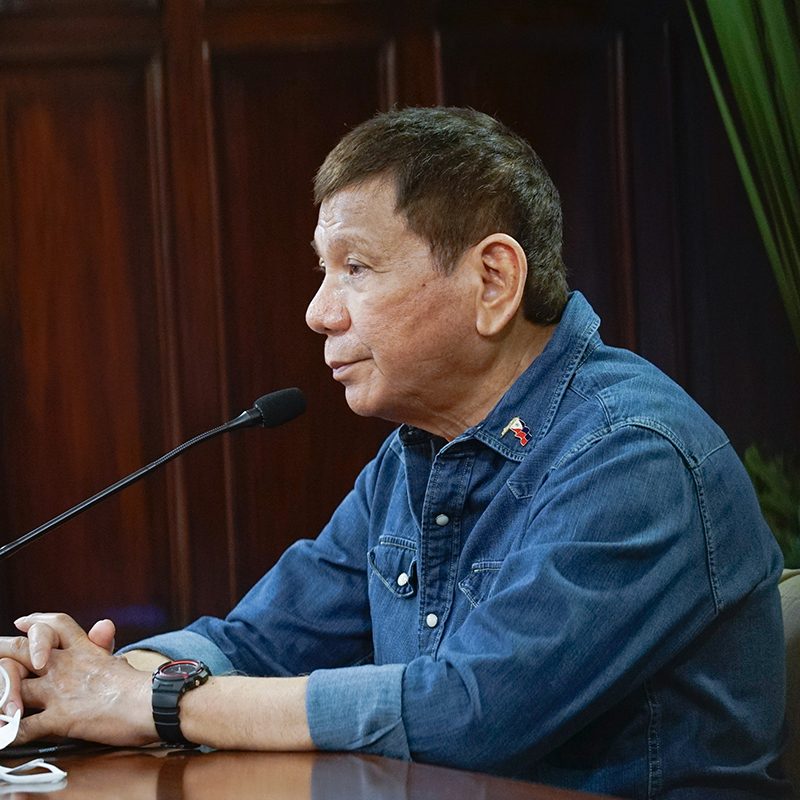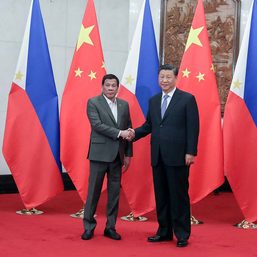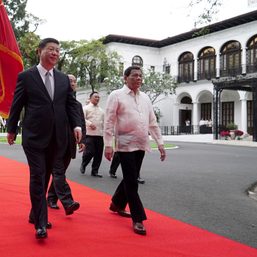SUMMARY
This is AI generated summarization, which may have errors. For context, always refer to the full article.

The last time the word “fascist” was used to describe a president was in the early ‘70s. It was also the time when the name Ferdinand Marcos was mentioned in the same breath as Adolf Hitler.
Student activists chanted “Ibagsak si Marcos! Pasista!” and “Marcos, Hitler, Diktador, Tuta!” while marching on the streets, their clenched fists raised. Vehemence was heavy in the air. The political atmosphere was heating up in the years leading to President Marcos’s declaration of Martial Law in 1972.
We heard this chanting again in the twilight years of the Marcos regime, the chorus rising after the assassination of opposition leader Benigno “Ninoy” Aquino Jr in August 1983. Waves of protests engulfed the city, including Ayala Avenue in Makati’s posh business district.
Now, here comes Rodrigo Duterte, the president who, hardly warming his seat in Malacañang, ordered policemen to kill suspected drug users and dealers. The streets of poor urban communities in Metro Manila and Central Luzon became the scenes of cold-blooded murders. Thousands of them.
In September 2016, just a few months into his presidency, Duterte likened himself to Adolf Hitler. This came after critics called him a “cousin of Hitler.” Instead of debunking this, he owned up to it. Remember what he said?
“Hitler massacred 3 million Jews. Now there [are] 3 million drug addicts…I’d be happy to slaughter them…At least if Germany had Hitler, the Philippines would have, you know, my victims. I would like to be – all criminals to finish the problem of my country and save the next generation from perdition.”
President Rodrigo Duterte
I’m bringing this up in the light of a recent provocative essay written by Walden Bello, an academic, author and former party-list member of Congress, published in commondreams.org. (You can read it here.) He argued that “the global spread of fascism is real, as real as the spread of COVID-19.” Bello cited Donald Trump in the US, Victor Orban in Hungary, Narendra Modi in India, Jair Bolsonaro in Brazil, and the Philippines’ Duterte as present day fascists.
He points out five characteristics of fascists:
- Disdain or hatred for democratic principles and procedures
- Promoting and tolerating violence
- A heated mass base supports their anti-democratic thinking and behavior
- They scapegoat and support the persecution of certain social groups
- They are charismatic individuals who exhibit and normalize all of the above
Duterte fits all of these five features. For me, the most striking is the “persecution of certain social groups.” His drug war, as Duterte himself alluded to, was like Hitler’s elimination of the Jews. How can anyone even take pleasure in announcing to the world the killing of people en masse?
Recalling this, I get goose bumps and am awash with disbelief at our fate as a country. How did we ever get to this? But that’s another story.
Name the beast
Bello may have been the first in the country to call Duterte a fascist. As early as August 2016, he unleashed the “f” word for which he was criticized by academics and even activists. He wrote in Rappler in January 2017: “There is an understandable reluctance to use the term ‘fascist,’ undoubtedly because the word has been applied very loosely to all kinds of movements and leaders that depart from liberal democratic practices.”
Bello urges us to call the beast by its name. Contemporary history throws us some light. “When Donald Trump got elected…opinion makers were taken by surprise. But most predicted that the office would transform the unpredictable star of reality television into a proper president, one respectful of the customs and traditions of the world’s oldest democracy,” Bello wrote.
We know how the four years of the Trump presidency brought the US on a knife edge. For our part, we have been living with a president with violence under his skin.
I spoke with Bello to gather more of his thoughts on Duterte and fascism and how our president compares to our Southeast Asian neighbors, particularly the military leaders of Thailand and Myanmar. Our interview also touched on what the democratic forces in the country can do to avoid another Duterte. Watch the interview here:

My main takeaway is this: The danger signs of fascism came early in Duterte’s administration. But we avoided the “f” word because Duterte was swept into power in a democratic election, a process which gave him a mantle of legitimacy, including to commit acts of violence against sectors of our society and throw away the rule of law.
Add a comment
How does this make you feel?





There are no comments yet. Add your comment to start the conversation.